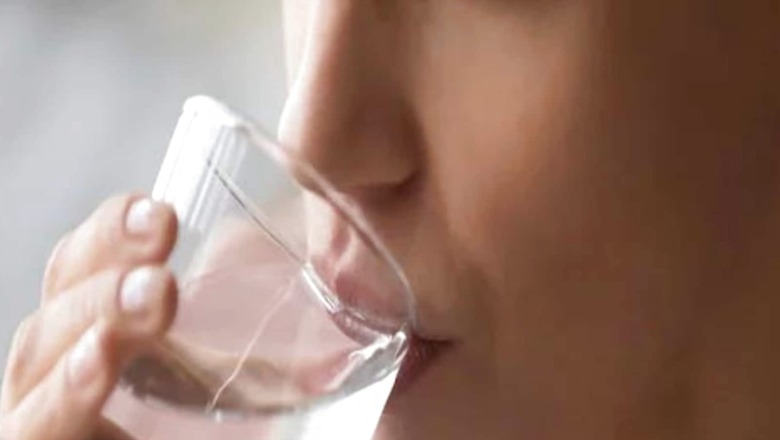
views
Our body needs water for survival. Every cell, tissue, muscle and organ needs it to perform its functions efficiently. Depending on the needs of the body, every person’s water-intake levels differ. The colour of the urine can help you detect the hydration status of the body. If the urine is a colourless or pale yellow, it means you are hydrated, whereas darker urine means you need more water. While our body needs water to stay healthy, its excess can have even negative impacts.
If you have been experiencing nausea, dizziness, vomiting, headache, confusion, disorientation or any other similar symptoms, it may be a sign of overhydration caused by drinking too much water.
What happens when you drink too much water?
Overhydration can also lead to several kidney issues that may prevent the organ from getting rid of the excess water in the body. The build up of water level can lead to dilution of sodium content in the blood, putting you at risk of hyponatremia — a life-threatening condition. A drop in sodium levels in the blood can cause severe symptoms that include muscle weakness or cramps, restlessness, seizures, and even unconsciousness.
What causes overhydration?
The reasons for overhydration can be –
– drinking too much water during intense heat or exercise/training. In such cases drinking something that has electrolytes will help maintain the sodium levels.
– Chronic kidney diseases, leading to fluid build-up in the body.
– Use of amphetamines like MDMA (ecstasy) can lead to exertion, making you extremely thirsty.
– Antipsychotic drugs
How to avoid overhydration?
Do not drink an excessive amount of water. If you are sweating a lot in the heat or from an intense workout, balance your fluid intake by also adding buttermilk, lemon juice with salt and sugar, coconut water, curd etc to your diet.
However, there are just preventive measures. If you continue to experience symptoms of overhydration, you should immediately consult a doctor.
Read all the Latest News and Breaking News here

















Comments
0 comment